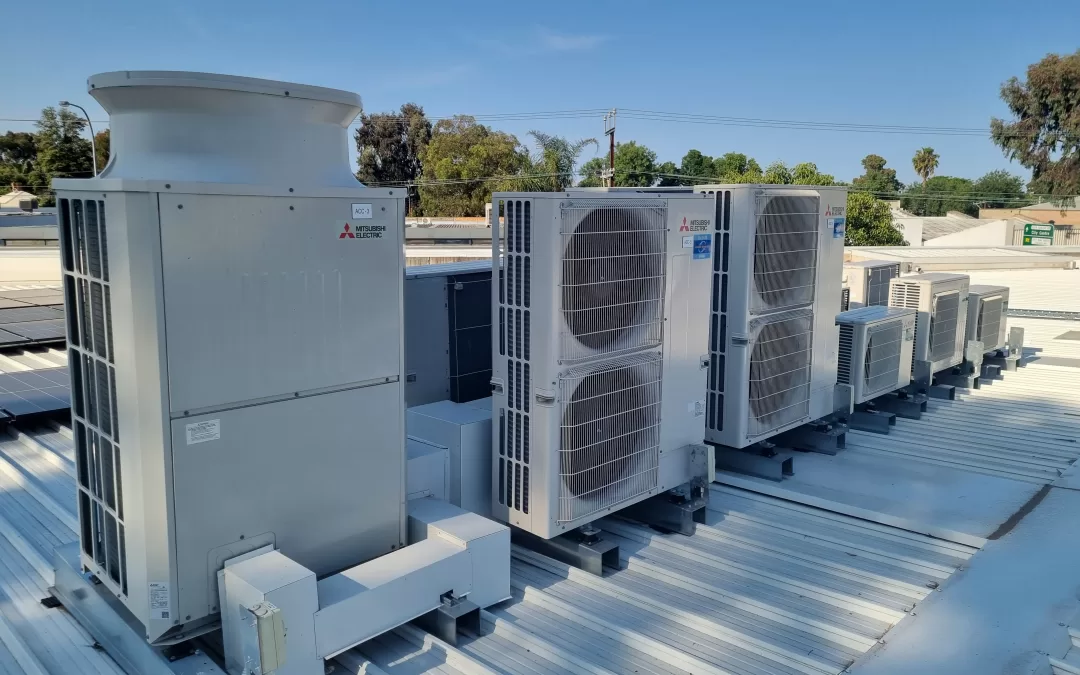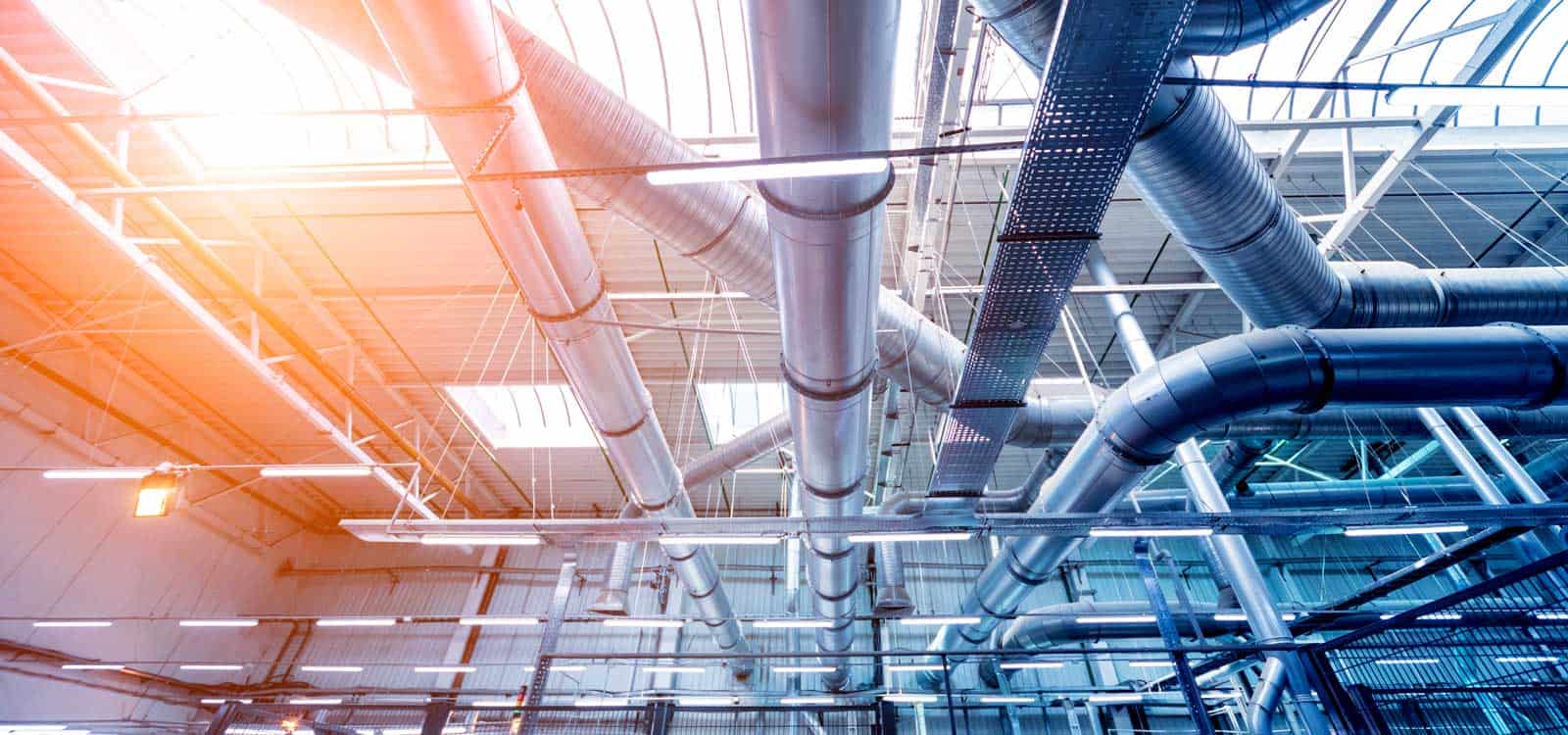Learn how HVAC experts use state-of-the-art technology to enhance efficiency
Wiki Article
Checking Out the Important Elements of an Effective A/c System
A reliable HVAC system is constructed on numerous essential components that operate in consistency. Each component, from the thermostat to the ductwork, plays a crucial role in keeping comfort and power performance. Comprehending these components is critical for enhancing efficiency and boosting indoor air high quality. As one examines these parts, the intricate partnerships in between them disclose insights into improving overall system performance. What details variables contribute most to this efficiency?The Function of the Thermostat in A/c Performance

Commonly overlooked, the thermostat plays a crucial function in the efficiency of Cooling and heating systems. This little gadget functions as the primary nerve center, managing temperature level settings and making sure optimal comfort within a room. By precisely noticing the ambient temperature, the thermostat interacts with the home heating, air flow, and air conditioning units to maintain the wanted climate
An efficient thermostat lessens energy intake by triggering the a/c system just when essential, thus avoiding excessive home heating or air conditioning. Modern programmable and smart thermostats boost this efficiency further by enabling customers to set routines and remotely change settings, adjusting to day-to-day regimens.
Furthermore, the placement of the thermostat is necessary; improper location can result in unreliable temperature level analyses, leading to ineffective operation. Generally, a well-functioning thermostat not just boosts convenience however likewise contributes considerably to energy savings and the longevity of the cooling and heating system.
Comprehending the Significance of Air Filters
Air filters serve a crucial feature in heating and cooling systems by assuring that the air circulating within an area continues to be healthy and balanced and clean. These filters trap dust, allergens, and other contaminants, avoiding them from being recirculated throughout the environment. By capturing these bits, air filters contribute to boosted indoor air top quality, which can substantially benefit residents' health, specifically those with allergic reactions or breathing problems.In addition, preserving clean air filters boosts the performance of HVAC systems. Stopped up filters can restrict air flow, causing the system to function tougher to preserve desired temperatures, causing boosted power usage and greater energy costs. Frequently replacing or cleaning up filters is an essential upkeep action that can extend the life-span of HVAC equipment. Eventually, understanding the importance of air filters allows homeowners and structure managers to take proactive steps to ensure a well-functioning, effective cooling and heating system that promotes a comfy and risk-free indoor environment.

The Performance of the Heater and Warmth Pump
Heaters and heatpump are critical parts of cooling and heating systems, liable for offering heat during colder months. Furnaces run by home heating air through combustion or electric resistance, after that distributing it throughout the home by means of ducts. They generally offer quick home heating and can be fueled by natural gas, power, or oil, depending on the system kind.Alternatively, heatpump transfer heat instead than create it. They draw out warmth from the outside air or ground, also in reduced temperatures, and transfer it inside. HVAC experts. This twin performance permits warm pumps to additionally offer air conditioning in warmer months, making them flexible options for year-round environment control
Both systems need appropriate maintenance to guarantee efficiency and durability. While heaters master extreme chilly, warm pumps can be advantageous in moderate environments. Recognizing their distinct performances aids house owners in selecting one of the most ideal choice for their heating needs.
Exploring the A/c System
The a/c unit is a vital element of heating and cooling systems, available in various kinds to suit various requirements. Understanding the efficiency scores of these units is essential for making educated choices about energy consumption and cost. This area will discover the varied kinds of a/c and clear up how performance ratings influence efficiency.Sorts Of Air Conditioners
While various factors affect the choice of cooling systems, recognizing the different kinds offered is crucial for property owners and structure supervisors alike. Central air conditioners are made to cool entire homes or structures, making use of a network of ducts for airflow. Window units supply an even more local solution, ideal for single rooms or little areas. Portable a/c give adaptability, enabling users to relocate the unit as required. Ductless mini-split systems are an additional alternative, integrating the effectiveness of central systems with the convenience of zoning, as they need no ductwork. Lastly, geothermal systems harness the planet's temperature for energy-efficient air conditioning. Each kind comes with unique benefits, making informed selections important for effective environment control.
Effectiveness Scores Explained
Recognizing efficiency rankings is essential for choosing the ideal a/c system, as these metrics give understanding right into the system's performance and energy consumption. The most usual rating for a/c unit is the Seasonal Energy Efficiency Ratio (SEER), which gauges the cooling output during a common cooling period divided by the complete electric energy input. A higher SEER suggests better effectiveness. In addition, the Power Performance Ratio (EER) is used for measuring effectiveness under certain problems. An additional crucial metric is the Power Celebrity qualification, which signifies that a device meets strict power efficiency standards. By reviewing these ratings, consumers can make educated choices that not just enhance comfort yet likewise reduce power expenses and environmental influence.The Value of Ductwork and Airflow
Effective ductwork design and air movement administration play vital roles in the general performance and efficiency of heating and cooling systems. Appropriate ductwork guarantees that conditioned air is dispersed equally throughout a space, reducing temperature level fluctuations and enhancing convenience. Get the facts Properly designed air ducts decrease resistance to air flow, reducing the workload on heating and cooling tools and eventually lowering power consumption.Air flow management includes tactically placing vents and registers to improve the circulation of air. This stops usual concerns such as hot or cool places, which can take place when air flow is obstructed or inadequately well balanced. Furthermore, the best air duct materials and insulation can further enhance performance by decreasing warm loss or gain throughout air transit.
An effective ductwork system not just adds to power savings however can likewise extend the lifespan of HVAC equipment by lowering unnecessary stress (HVAC experts). As a result, recognizing the significance of ductwork and airflow is vital for attaining peak heating and cooling system performance
Routine Maintenance Practices to Enhance Performance
Routine maintenance methods are vital for making sure peak performance of cooling and heating systems. These methods consist of regular examinations, cleansing, and needed repair services to keep the system running efficiently. Regularly changing air filters is crucial, as clogged filters can obstruct air flow and decrease effectiveness. Additionally, service see here now technicians ought to inspect and clean evaporator and condenser coils to avoid getting too hot and energy wastage.Yearly expert assessments are likewise recommended, as trained service technicians can recognize prospective issues prior to they escalate. Lubricating moving components lessens damage, adding to a much longer life-span for the system. Making sure that the thermostat operates properly help in keeping optimal temperature control.
Often Asked Questions
How Commonly Should I Change My Thermostat?
Thermostats must usually be changed every 5 to ten years, depending on usage and innovation advancements. Normal checks are advisable to guarantee peak performance, particularly if experiencing irregular temperature level control or enhanced energy costs.What Dimension Air Filter Is Finest for My Cooling And Heating System?
The very best dimension air filter for a heating and cooling system differs by device style. Commonly, it's important to seek advice from the check my source proprietor's handbook or check the existing filter measurements to assure peak performance and air top quality.Can I Install a Heatpump Myself?
Mounting a warm pump separately is feasible for proficient people, but it needs understanding of neighborhood codes and electric systems. Employing a professional is advised to assure appropriate installation and suitable system efficiency.Exactly how Do I Know if My Ductwork Is Effective?
To figure out ductwork effectiveness, one ought to inspect for leakages, action air movement at vents, check insulation top quality, and review temperature level distinctions in between supply and return ducts. Professional assessments can provide thorough understandings into overall performance.What Are Indicators My Cooling And Heating Requirements Immediate Upkeep?
Indicators that a heating and cooling system requires immediate upkeep include unusual sounds, inconsistent temperature levels, boosted energy costs, unpleasant smells, and regular cycling. Resolving these problems quickly can protect against additional damage and assurance peak system efficiency.Air filters serve an essential feature in Heating and cooling systems by assuring that the air circulating within a room remains healthy and balanced and clean. In addition, preserving clean air filters boosts the performance of Cooling and heating systems. Ductless mini-split systems are an additional option, incorporating the performance of central systems with the comfort of zoning, as they call for no ductwork. Understanding effectiveness rankings is vital for selecting the best air conditioning device, as these metrics provide insight into the system's efficiency and power intake. The ideal size air filter for a HVAC system varies by system layout.
Report this wiki page